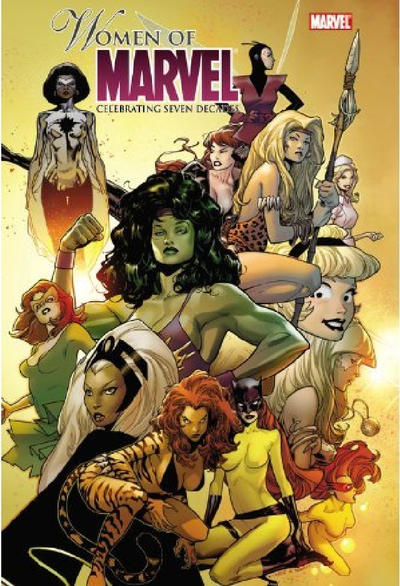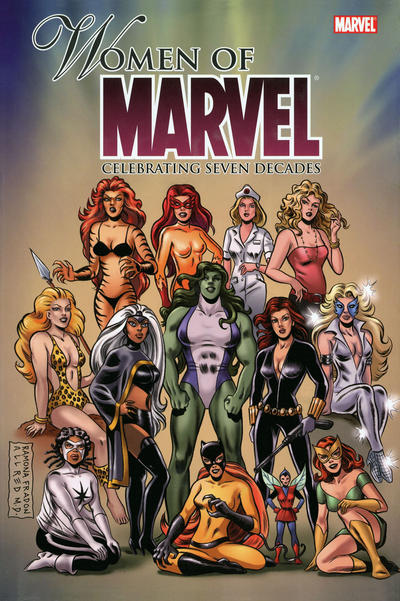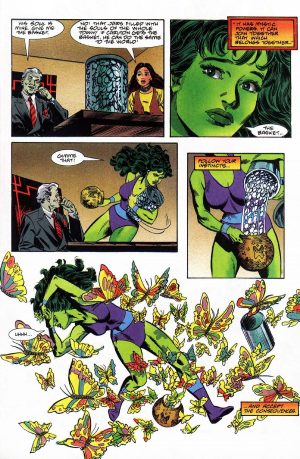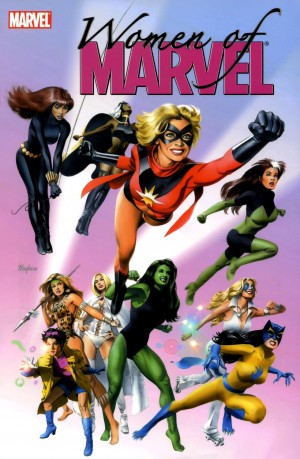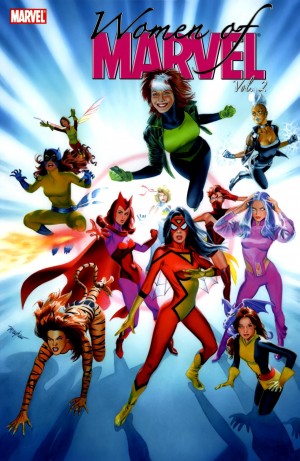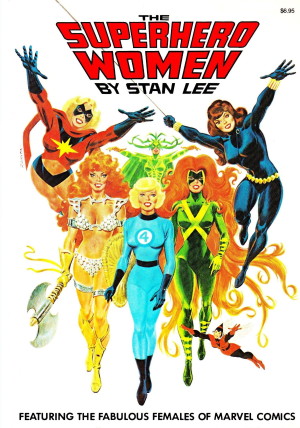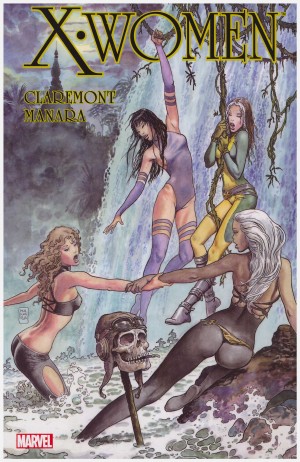Review by Ian Keogh
Another bizarre collection issued under the Women of Marvel title, so matching the similarly named anthologies issued in 2006 and 2007. There’s barely any representation for X-Men, which excludes many of Marvel’s most prominent female characters. Neither do we have Invisible Woman, Scarlet Witch or Carol Danvers, leaving the Wasp, She-Hulk and the Black Widow as the Marvel women with the highest profile, although the latter’s not to be confused with her 1940s counterpart who opens the book. Instead of headliners there’s a fascination with tracing the career of the Cat through various incarnations (as Tigra and Hellcat), and the progression of Shanna the She-Devil, neither of them Marvel’s most commercial or critical successes.
So, Celebrating Seven Decades? Really? Three-quarters of the content originates from the 1970s and the 1980s, with one 1990s sample and nothing thereafter while the 1950s are also excluded. The 1940s are represented by a single odd tale, and the 1960s are skimmed. The Wasp is given short shrift, featuredas the host of sting in the tail short stories. The Jean Grey solo is similarly uninspired, leaving the 1960s highlights as the Millie the Model and Patsy Walker efforts, in which the casual sexism is jaw-dropping. So is the 1970s Spider-Man and Cat team-up dealing with the ludicrous Man-Killer.
Four issues of Night Nurse are the rarest material reprinted, otherwise available only as prohibitively expensive old comics or digitally. Much derided at the time by superhero fans, they’re enjoyable soap opera, well crafted by Jean Thomas blending crime, romance and melodrama, and if Winslow Mortimer’s art was old fashioned in 1972, it’s still better than a lot of the later art on offer here.
The 1970s is best represented by Steve Gerber and Bob Brown’s nutty Daredevil and Black Widow story in which Shanna guest-stars, outdone for skimpiest costume by voodoo priestess Nekra. Throw in the mind-controlling Mandrill, the introduction of the Silver Samurai and some lovely Gene Colan art for the finale, and while no masterpiece, at least it’s fun, and there’s too much of this content to which that doesn’t apply.
Three of Marvel’s 1980s graphic novel line are featured. John Byrne’s She-Hulk is enjoyable fluff, as is Dazzler – The Movie by Jim Shooter and Frank Springer, but The Aladdin Effect sinks nice ideas in dull art and suspect attacks on women, making it an odd selection. Another She-Hulk story is the best in the book. Originally issued in two parts, ‘Ceremony’ begins with an attack on an abortion clinic, and in saving the day She-Hulk reawakens feelings of wanting to have a child, so reignites a relationship with Wyatt Wingfoot, whose native American culture also feeds into the plot. Robin D. Chaplik (plot) and Dwayne McDuffie (plot and script) deal with quite a few social issues in a respectful fashion while still providing the full dose of battering action, along with mysticism, not often a feature of She-Hulk material. June Brigman pencils and Stan Drake inks is an unusual combination (sample page), but one that works and is wonderfully imaginative in places.
McDuffie and M.D. Bright on two Captain Marvel tales (Monica Rambeau iteration) have their moments, but under half the book is occupied by the better content highlighted in this review, and some of the remainder is very poor. With little other than the scarcity of some material to recommend it, this truly is the omnibus for those willing to settle for second best. Buy the original She-Hulk issues cheap and forget about the rest.
